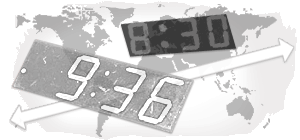Public Ethos- The Royal Charter Agreement
Public service broadcasting is based on the principles of universality of service. From 1st January The Royal Charter Agreement set out the public purposes of the BBC and is the constitutional basis for the BBC. The Charter outlines the duties of the trust and Executive Board and guarantees its independence, and has been throughout it’s history. Their mission is ‘to enrich peoples lives with programmes and services that inform, educate and entertain.’
Free Market Ethos- The Broadcasting Act 1990
The Broadcasting Act 1990 is a law of the British parliament, the aim was to reform the entire structure of British broadcasting British Television. The act allowed for the creation of a 5th analogue television channel, which was named Channel 5, it also allowed the growth of multichannel satellite television. It also limited the power of the BBC, which previously produced the vast majority of its television programming in-house, was now obliged to source at least 25% of its output from independent production companies. The act allowed companies that had hold of the ITV franchise to take over other companies, this process led to the creation of ITV plc.
TV is currently regulated by the media regulator Ofcom. The Office of Communications Act 2002 set up Ofcom with the aim to protect audiences in areas such as taste, decency, fairness and privacy. With the increase of on-demand services self-regulated company called the Association for Television on Demand, was set up to regulate online programming, with similar aims than Ofcom.
Currently online videos are much harder to regulate because anyone, anywhere can upload a video to the internet, and there is no legal regulation of online video. Many elements such as, racial hatred and blasphemy are still illegal online, but there is so much content created all the time coming from all around the world, making it extremely difficult to create any applicable laws. The European Union is in the process of updating its laws, with the aim to protect children from sex and violence and set new limits on advertising. But many people are against this as this will take away peoples freedom with posting what ever they what instantly online.


